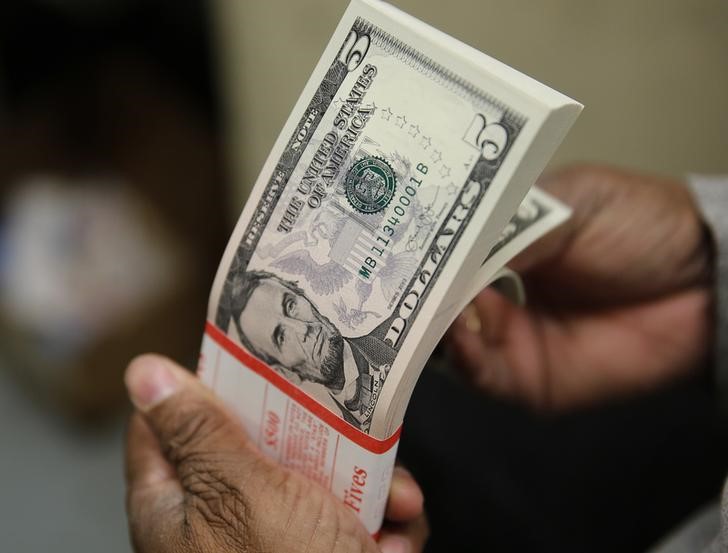Investing.com - This week concerns over trade tensions and emerging market turmoil will remain at the forefront for investors ahead of Friday’s U.S. jobs report.
Last week the U.S. reached a deal with Mexico aimed at overhauling the North American Free Trade Agreement, but talks with Canada stalled hours before a Friday deadline. Separately, the Trump administration is preparing to slap a fresh round of tariffs on Chinese imports, escalating a trade row with Beijing.
U.S. financial markets will be closed on Monday for the Labor Day holiday. The non-farm payrolls report for August is due out on Friday and is expected to show that the economy added 190,000 jobs while the unemployment rate ticked lower.
Outside the U.S., central bank meetings in Canada and Australia will be in focus. Investors will also be watching testimony by Bank of England Governor Mark Carney on inflation.
The dollar rose against a basket of the other major currencies on Friday after trade negotiations between the U.S. and Canada ended without an agreement.
The U.S. dollar index, which measures the greenback’s strength against a basket of six major currencies, was up 0.43% at 95.05 late Friday. The index posted a monthly gain, boosted by safe haven demand, its fourth in the past five months.
The Canadian dollar was weaker against its U.S. counterpart late Friday, with USD/CAD advancing 0.45% to 1.3043.
The euro was also pressured lower by trade woes, with EUR/USD down 0.55% to 1.1602 in late trade after President Donald Trump said the European Union’s proposal to eliminate auto tariffs was “not good enough.”
In emerging markets, Turkey’s lira rebounded Friday after authorities announced fresh measures aimed at shoring up the currency, which is on track to post its largest monthly decline since an economic crisis 17 years ago.
The Argentinian peso also regained ground after tumbling to record lows on Thursday.
The peso sold off last week after Argentina’s President Mauricio Macri called on the International Monetary Fund to speed up payments of bailout money, causing investors to lose confidence in the economy.
The drop in the peso last week saw it overtake the Turkish lira as the worst performing emerging market currency in 2018.
Ahead of the coming week, Investing.com has compiled a list of significant events likely to affect the markets.
Monday, September 3
Australia is to release data on retail sales and company operating profits.
Bank of Japan Governor Haruhiko Kuroda is to speak at an event in Tokyo.
The UK is to publish data on manufacturing activity.
Markets in the U.S. and Canada will be closed for the Labor Day holiday.
Tuesday, September 4
The Reserve Bank of Australia is to announce its benchmark interest rate and publish a rate statement which outlines economic conditions and the factors affecting the monetary policy decision.
The UK is to publish data on construction activity.
Bank of England Governor Mark Carney along with other policymakers are to testify on inflation and the economic outlook before Parliament's Treasury Committee.
Later in the day, the Institute for Supply Management is to publish its manufacturing index.
Wednesday, September 5
Australia is to release data on second quarter gross domestic product.
The UK is to publish data on service sector activity.
Canada is to produce figures on trade and labor productivity.
Later in the day, the Bank of Canada is to announce its latest monetary policy decision.
Thursday, September 6
Australia is to release trade figures.
In the U.S., the ADP nonfarm payrolls report and the ISM’s non-manufacturing index will be released.
Friday, September 7
China is to publish trade data
Canada is to publish its latest employment report.
The U.S. is to round up the week with the non-farm payrolls report for August.
